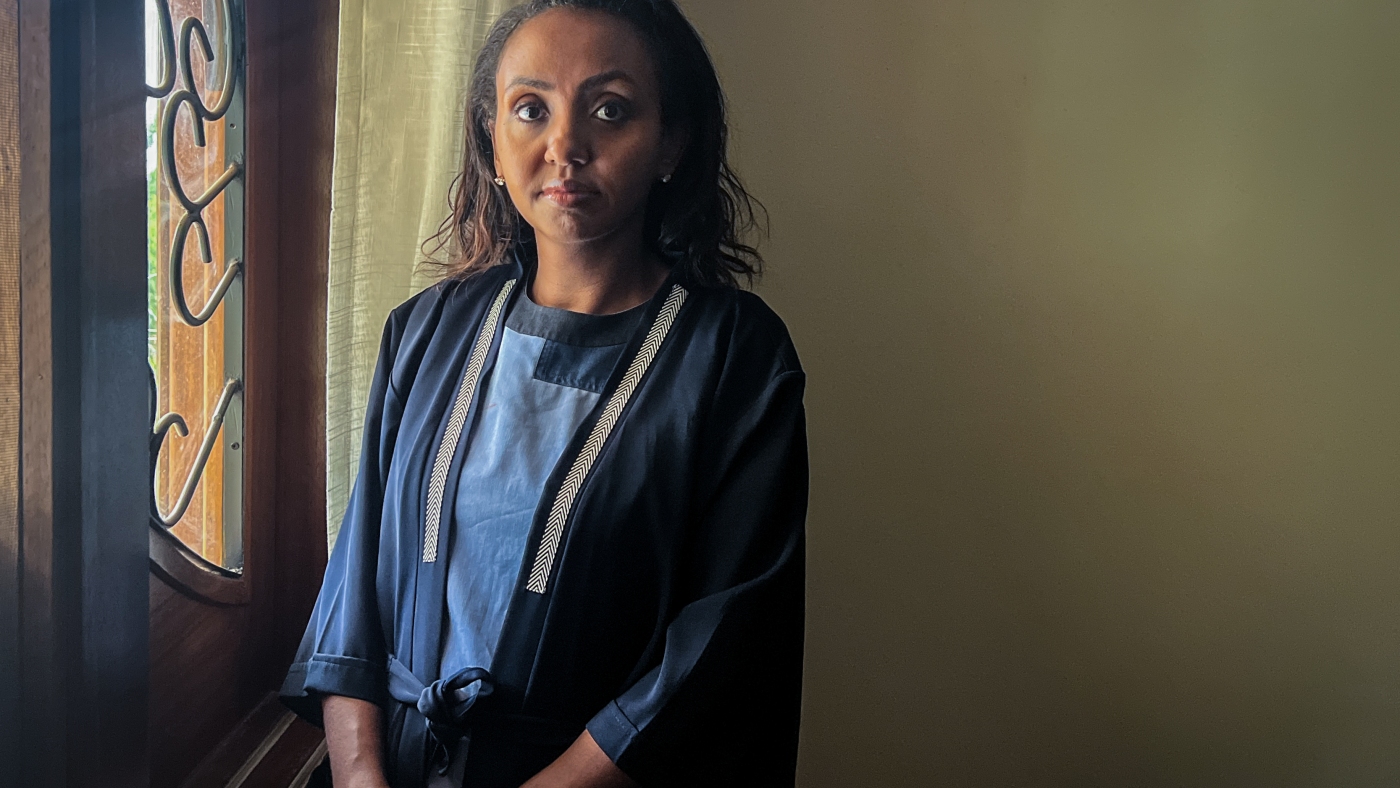A bold doctor sent her kids away and helped beat one of the world's deadliest viruses
toggle caption Ben de la Cruz/NPR
Tsion Firew had just finished running a first aid training when she glanced down at her phone — and then looked up confused.
The message she saw was about a colleague Firew had worked with a few days earlier in the emergency department at King Faisal Hospital in Kigali, Rwanda. "She's very young, full of energy, one of the smartest nurses I've ever worked with," recalls Firew, who is chair of emergency medicine at Africa Health Sciences University in Rwanda.
The message simply said: "Pray for her."
Firew rejiggered her schedule and made a trip to the intensive care unit. As Firew peeked around the screen that divided the patients, she saw the young energetic nurse and was taken aback. The woman was almost "lifeless." Eyes barely open. Not recognizing familiar faces.
Sponsor Message
"It was quite scary, because you had no idea what you were dealing with," Firew says.
Soon it became clear.
This was one of those moments where the job of a health care worker can quickly go from risky to deadly.
On September 27, 2024 Rwanda announced the country's first Marburg outbreak — a deadly virus that's a cousin to Ebola. For Firew, it was the beginning of a harrowing journey. She sent her 1- and 3-year-old children to another country. She faced pressure from her family to stop working as an emergency room doctor for her own safety. And she hallucinated from sheer exhaustion.
Now, a year later, the basics of the outbreak in Rwanda a
Continue Reading on NPR
This preview shows approximately 15% of the article. Read the full story on the publisher's website to support quality journalism.
